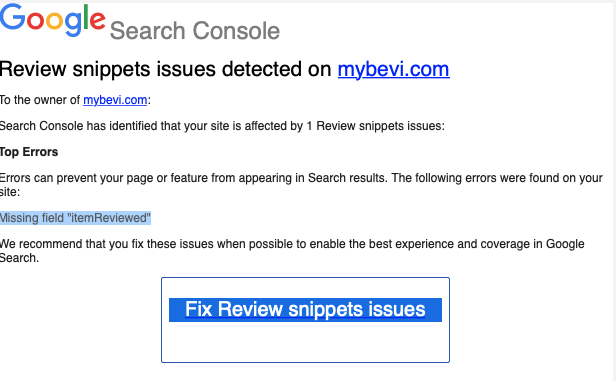Real estate has long been considered one of the most stable and profitable investments. With the rise of the sharing economy, renting out a portion of one's property has become increasingly popular, leading to the rise of the rental property market. Investing in rental properties can provide a steady stream of passive income, but it's essential to understand the ins and outs of the market before diving in. This comprehensive guide will cover everything you need to know to start investing in rental properties for passive income. We'll start by explaining rental properties and the types available, including single-family homes, multi-unit properties, and commercial properties.
This comprehensive guide will cover everything you need to know to start investing in rental properties for passive income. We'll start by explaining rental properties and the types available, including single-family homes, multi-unit properties, and commercial properties.
We'll also cover the advantages and disadvantages of investing in rental properties, including the potential for passive income, tax benefits, and potential risks.
We'll then dive into the essential aspects of rental property investment, including how to find the right property, finance your investment, and manage your property.
We'll also cover key metrics, such as cap rate, cash-on-cash return, gross rental yield, and how to calculate them. We'll also explore strategies for maximizing your rental income and managing expenses, including pricing your rental property, property maintenance, and dealing with tenants.
Finally, we'll explore some common mistakes new rental property investors make and provide tips for avoiding them. With this guide, you'll have everything you need to make informed decisions about investing in rental properties for passive income.
Whether you're just starting or looking to expand your portfolio, this guide will provide you with the knowledge and tools to succeed in the rental property market.
Types of Rental Properties: Single-Family Homes, Multi-Unit Properties, and Commercial Properties
When investing in rental properties, there are three main types to consider: single-family homes, multi-unit properties, and commercial properties. Each type has its unique characteristics, advantages, and disadvantages. Understanding the differences between them is essential for making informed investment decisions.
Single-Family Homes
Single-family homes are standalone properties designed to house one family. They are the most common type of rental property and are often preferred by first-time investors. Single-family homes are typically easy to maintain, and vacancies can be filled quickly. They are also popular among families and provide the privacy that cannot be found in multi-unit or commercial properties.
However, single-family homes have lower rental yields than multi-unit or commercial properties. They also come with higher maintenance costs, and vacancies can be more challenging in slow rental markets.
Multi-Unit Properties
Multi-unit properties, also known as multi-family properties, are buildings designed to house multiple families. These properties can range from duplexes to apartment buildings with hundreds of units. Multi-unit properties offer higher rental yields than single-family homes, making them popular among investors.
One of the significant advantages of multi-unit properties is the ability to spread rental income across multiple units. This reduces the impact of vacancies and makes it easier to generate passive income. Multi-unit properties also tend to have lower unit maintenance costs than single-family homes.
On the other hand, multi-unit properties can be more challenging to manage, and turnover rates can be higher. They may also require more substantial investments upfront, making them less accessible to first-time investors.
Commercial Properties
Commercial properties are buildings used for business purposes, such as office buildings, retail spaces, or warehouses. These properties offer the highest rental yields of the three types but also have the highest risk. Commercial properties typically require long-term leases, making vacancies more costly for investors.
One of the advantages of commercial properties is the ability to negotiate longer-term leases, which can provide a more stable rental income. They also tend to have lower turnover rates compared to multi-unit properties, reducing the need for frequent tenant turnover.
However, commercial properties are subject to market fluctuations and economic downturns, making them riskier investments. They also require specialized knowledge to manage effectively, making them less accessible to first-time investors.
Pros and Cons of Investing in Rental Properties: Passive Income, Tax Benefits, and Risks
Investing in rental properties can be a lucrative way to generate passive income and build long-term wealth. However, it's important to understand the pros and cons of this type of investment before diving in. In this article, we'll explore the benefits and drawbacks of investing in rental properties, including passive income, tax benefits, and risks.
Passive Income
One of the most significant advantages of investing in rental properties is the ability to generate passive income. Rental properties provide a steady stream of rental income, which can be used to cover the costs of the property and provide a source of passive income for the investor.
The amount of passive income generated from rental properties depends on various factors, including the location, type of property, and rental rates. However, with proper management, rental properties can provide a reliable source of passive income for many years.
Tax Benefits
Investing in rental properties also comes with several tax benefits. Rental income is typically subject to lower tax rates than ordinary income, and investors can also deduct expenses related to their rental properties, such as property taxes, mortgage interest, and maintenance costs.
Additionally, rental property investors may be able to take advantage of depreciation deductions, which can help offset their taxable rental income. These tax benefits can help reduce the overall tax burden of owning rental properties and increase the investor's net income.
Risks
While rental properties offer several advantages, they also come with some risks. One of the most significant risks is the potential for vacancies, which can result in lost rental income and increased expenses for the investor.
Additionally, rental properties require ongoing maintenance and repairs, which can be costly for the investor. Rental properties also require active management, which can be time-consuming and require specialized knowledge of the rental market and property management.
Finally, rental properties are subject to market fluctuations, which can impact rental rates and property values. Investors must be prepared for the possibility of economic downturns and changes in the rental market.
Key Aspects of Rental Property Investment: Finding the Right Property, Financing, and Property Management
Investing in rental properties can be a great way to generate passive income and build long-term wealth. However, successful rental property investment requires careful planning and execution. In this article, we'll explore the key aspects of rental property investment, including finding the right property, financing, and property management.
Finding the Right Property
Finding the right rental property is a critical aspect of rental property investment. The right property can provide a steady stream of rental income and long-term appreciation, while the wrong property can result in lost income and increased expenses.
When searching for a rental property, it's important to consider factors such as location, market trends, and rental rates. Properties in high-demand locations with strong rental markets and desirable amenities can provide a more stable investment.
Additionally, it's important to consider the condition of the property, potential renovation or upgrade costs, and any zoning or regulatory issues that may impact the property's value and rental potential.
Financing
Financing is another crucial aspect of rental property investment. Investors can choose from various financing options, including conventional mortgages, private lenders, and hard money loans.
When selecting a financing option, it's essential to consider factors such as interest rates, down payment requirements, and repayment terms. Investors should also have a solid understanding of their financial goals and risk tolerance before choosing a financing option.
It's important to note that rental property investment typically requires a significant upfront investment, including down payments, closing costs, and initial repairs or renovations. Investors should have a solid financial plan in place to cover these expenses and ensure that they can meet ongoing mortgage and maintenance costs.
Property Management
Effective property management is crucial for rental property investment success. Property management involves various tasks, including finding and screening tenants, collecting rent payments, handling repairs and maintenance, and ensuring compliance with local regulations and laws.
Investors can choose to manage their properties themselves or hire a professional property management company. Hiring a property management company can provide several benefits, including reduced stress and workload, increased tenant satisfaction and retention, and improved property maintenance and upkeep.
When selecting a property management company, it's essential to consider factors such as experience, reputation, and cost. Investors should also clearly understand the property management company's responsibilities and communication processes.
Maximizing Rental Income and Managing Expenses: Pricing Your Rental Property, Property Maintenance, and Dealing with Tenants
Maximizing Rental Income and Managing Expenses: Pricing Your Rental Property, Property Maintenance, and Dealing with Tenants
Investing in rental properties can be profitable for generating passive income and building long-term wealth. However, successful rental property investment requires careful planning and execution.
This article will explore maximizing rental income and managing expenses effectively by discussing pricing your rental property, property maintenance, and dealing with tenants.
Pricing Your Rental Property
Setting the right rental price for your property is crucial for maximizing rental income. A rental price that's too high can deter potential tenants, while a rental price that's too low can result in lost income.
You must consider location, market trends, and property conditions to set the right rental price for your property. It's essential to conduct thorough market research to understand the rental rates of similar properties in your area. You can also use online tools and resources to help you set the right rental price.
Property Maintenance
Effective property maintenance is essential for maximizing rental income and ensuring tenant satisfaction. Maintaining your property can also help prevent costly repairs and improve the overall value of your property.
To ensure effective property maintenance, it's important to conduct regular inspections and address any issues promptly. You should also have a solid maintenance plan and budget accordingly for repairs and upkeep.
Dealing with Tenants
Effective tenant management maximizes rental income and ensures long-term tenant satisfaction. Establishing clear communication and expectations from the outset is important to avoid misunderstandings and conflicts.
When dealing with tenants, being professional and responsive to their needs and concerns is important. You should also have a solid screening process to ensure you're selecting reliable and responsible tenants.
In a dispute or issue, it's essential to remain calm and professional and work toward a mutually satisfactory resolution.
Avoiding Common Mistakes: Tips for New Rental Property Investors
Avoiding Common Mistakes: Tips for New Rental Property Investors
Investing in rental properties can be a lucrative way to generate passive income and build long-term wealth. However, it's not without its risks and challenges. As a new rental property investor, it's essential to educate yourself on the common mistakes that others have made before you. In this article, we'll explore some tips to help you avoid common mistakes and succeed in rental property investment.
Research and Due Diligence
Before investing in any rental property, conducting thorough research and due diligence is essential. This includes researching the local rental market, evaluating property conditions, and calculating potential rental income and expenses.
It's also important to have a solid understanding of local regulations and laws governing rental properties. Failure to comply with these regulations can result in costly fines and legal issues.
Financing and Budgeting
Effective financing and budgeting are crucial for successful rental property investment. It's important to understand the costs involved, including mortgage payments, property taxes, insurance, and maintenance expenses.
New investors should also know the risks associated with borrowing to finance a rental property. It's important to have a solid financial plan and budget accordingly to avoid financial strain and the potential loss of the property.
Property Management
Effective property management is crucial for successful rental property investment. This includes finding and screening tenants, maintaining the property, and promptly addressing tenant issues and concerns.
New investors should consider working with a property management company to help them navigate the challenges of rental property management.
A property management company can handle tenant communication, rent collection, and property maintenance, allowing the investor to focus on other aspects of the business.
Pricing and Marketing
Setting the right rental price and effectively marketing your property are crucial for maximizing rental income. It's important to conduct thorough market research to understand the rental rates of similar properties in your area and set a competitive rental price.
Effective marketing can also help attract quality tenants and reduce vacancy rates. This includes creating quality property listings, leveraging social media and online platforms, and providing a positive tenant experience.
Conclusion:
In conclusion, rental property investment can be a highly rewarding and lucrative opportunity for generating passive income and building long-term wealth. However, it's important for new investors to take a proactive approach to avoid common mistakes and maximize their success.
By conducting thorough research and due diligence, effectively financing and budgeting, implementing solid property management strategies, and setting competitive rental prices and effectively marketing your property, new rental property investors can achieve their financial goals.
It's also important to remember that rental property investment is not a one-size-fits-all strategy. Each property and market has its unique challenges and opportunities, and it's essential to regularly evaluate and adjust your strategies to maximize your returns.
Overall, with the right mindset, education, and strategies, rental property investment can be an excellent way to achieve financial freedom and security. As a new investor, it's important to take the time to educate yourself and seek guidance from professionals to ensure your success in the rental property market.
Frequently Asked Questions (FAQ):
What are some of the tax benefits of investing in rental properties?
Some tax benefits include deductions for mortgage interest, property taxes, insurance, and repairs, as well as depreciation deductions.
What is cap rate, and why is it important for rental property investors?
The cap rate is a metric that measures a property's net operating income divided by its value. Investors need to consider because it can help determine the potential return on investment.
How can investors finance their rental property investments?
Financing options include conventional mortgages, government-backed loans, private loans, and cash purchases.
What are some common mistakes that new rental property investors make?
Common mistakes include underestimating expenses, overestimating rental income, not screening tenants properly, and failing to maintain the property.
How can investors maximize their rental income?
Strategies for maximizing rental income include pricing the rental property competitively, offering desirable amenities, keeping the property well-maintained, and ensuring a positive tenant experience.







